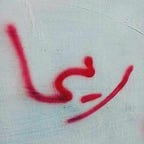Let’s Not Postpone The End Of Zionism
I believe that the only true decolonization of historic Palestine that has any chance for a just outcome must strip away and discredit the settler identity, which in the case of Israel uses a warped version of Jewish identity, so warped that pro-Palestine activists often refuse to describe Israel as a Jewish state.
I believe that at this point, it is not enough for us to focus on a vision of equality for the future (what we are struggling for); we need also to be able to articulate, accurately, what it is we are fighting against.
Were Palestinians struggling against, say, the British, to decolonize Palestine and bring about self-determination to Palestinians, there would be no such need. However, there are people saying that the Zionist narrative, in the form of the desire of Zionist Jews for a Jewish “refuge,” is not going away — even though it is the very core of the problem.
So, what are my choices as a Palestinian? I choose to ignore Peter Beinart’s problematic formulation that will begin the peddling of a “kinder and gentler” Zionist narrative. Instead, because that narrative continues to exert a tremendous power over this situation, I will insist on a Palestinian narrative that categorically rejects Zionism and both factors that drove it historically: as a reaction against Jewish assimilation, and as a desire to colonize Palestine.
Beinart’s “defection” from the “liberal Zionist” camp makes his case for equality in the context of the following Zionist frame: “The essence of Zionism is not a Jewish state in the land of Israel; it is a Jewish home in the land of Israel, a thriving Jewish society that both offers Jews refuge and enriches the entire Jewish world.”
As a Palestinian, I am unwilling to accept Beinart’s frame for my “equality” and self-determination in Palestine, for the simple reason that I never have nor ever will think of Palestine rhetorically as “the land of Israel”— I refuse in the name of the martyred, the maimed, the incarcerated, the millions whose existence Israel has blighted for decades, and for the sake of the truth.
I hope the anti-Zionist struggle remains firmly and clearly anti-Zionist, targeting Jewish nationalism in all its horrific manifestations, both in Palestine and abroad — see “Gatekeeping”, National Judaism And The Liberation Of Palestine.
A friend of mine says, and I agree:
People are free to believe whatever they wish, but they are not free to impose the requirements of their beliefs on the rest of us. And “Jewish peoplehood” whether in Palestine or the “diaspora” imposes costs; on the left it has controlled dissent, precluding an analysis of Zionism as “Jewish race doctrine” and of the radicalising, destabilizing influence of Israel and its Lobby on foreign policy.
In his famous essay of 1989 titled The End of History?, Francis Fukuyama argued that liberalism, democracy and “Common Marketization” had triumphed over Communism and Fascism and become “universal.”
Today, political and social reforms, globally, are at a crisis point. So, of course, Fukuyama was way off the mark — except for his prediction regarding the former Soviet Union. One reason his essay caught on, though, was because he offered “Cold War realists a kind of valediction: their mission, though philosophically misconceived, had been accomplished.”
To my ears, Peter Beinart’s speech offers Zionists a kind of valediction I refuse to accept — see A Jewish Zionist Tent Is No Place For Palestinians.
___________________
Rima Najjar is a Palestinian whose father’s side of the family comes from the forcibly depopulated village of Lifta on the western outskirts of Jerusalem and whose mother’s side of the family is from Ijzim, south of Haifa. She is an activist, researcher and retired professor of English literature, Al-Quds University, occupied West Bank
